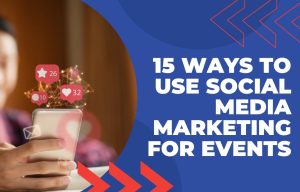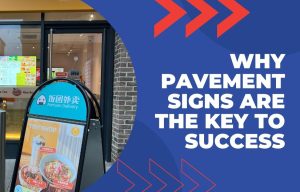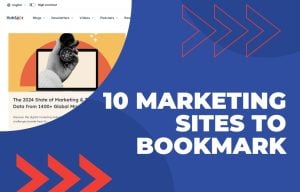Perhaps no other industry has been as shaken up and re-defined as the hotel and hospitality sector. The rise of travel comparison sites such as Trivago, which has over 80 million users every month, social media and review sites like TripAdvisor have put paid to the times when hotels could rely on traditional advertising models.
Like any service based industry in the digital age, marketing is now about creating connections, starting conversations and engaging people with your brand on a personal level.
People simply don’t engage with advertising campaigns on TV, radio and print in the same way, relying more on signals of trust, receiving value and personal feedback when making their purchasing decisions.
The good news for hotels is that they are in the perfect position to connect with their guests in a personal environment and turn them into ambassadors of their brand both online and offline.
It All Starts With The Service
The most crucial element in creating a successful network of user driven marketers, and indeed the most crucial for the long term success of any hotel, is the service.
Get the service wrong, and all the benefits of user driven promotion turn into negatives and could irreversibly damage the reputation of your business.
The relationship between hotel and guest is a very personal one, and the top priority should always be to find ways to increase customer satisfaction over spending money on big advertising campaigns.
As well as service between staff and guest, convenience plays a big factor in the enjoyment of the stay. Hotels.com conducted a survey asking customers what amenities are the deciding factor when choosing a hotel, with both leisure and business travellers choosing free Wi-Fi. Throwing in extras are also a great way to mitigate any bad service experienced by guests and keep their overall stay a positive one.
The better the service, the easier it will be to curate relationships with guests and engage with them to promote your brand.
Digital User Driven Content
If you have got the service right, then guests will naturally share their experiences with the wider world, but the key is to find ways to encourage this behaviour, being aware of when it is happening and to follow it up with personal interaction.
Social Media
On a personal level you will no doubt be very aware that come summer time your social media feeds fill up with posts and pictures of your friends on holiday.
According to PWC 63% of generation X travellers and a third of baby boomers share a daily status update while on holiday, and as well as sharing where they have been, people are also likely to talk about where they want to go so engagement can start even before someone becomes a guest.
So how do you create and engage with the potential of social media? One way is to create shareable content, the focus here should always be on providing value rather than selling your brand directly.
This could range from articles on holiday tips, to images of creative hotel displays or unique features of your hotel.
Encourage people to become fans of your brand by liking or following your page and you have a direct way to encourage conversations and answer any questions in a personable connection.
Social proof is one of the ever present marketing terms when talking about social media. As well as recommendations from friends and family this can be in the form of industry experts and celebrities. Getting a recommendation from a respected vlogger is marketing gold dust , and this could be very attainable for a hotel by offering to host a meet-up of vloggers, creating a potential exposure of your hotel to millions of people.
People are more likely to be influenced by people similar to themselves, so target key influencers by using tools such as Followerwonk and Klout as they will have an established follower base in place.
Ensure that you have tools to track mentions of your brand, some great examples are Google Alerts, Tweet Alarm, SocialMention and Moz Fresh Web Explorer. You can also manually search for your brand in the search bar of most social media platforms.
Reviews
Building a positive review profile is one of the strongest trust indicators a business can have. A survey in 2014 by BrightLocal found that 88% of respondents have read reviews to determine the quality of a local business and 72% of consumers will take action after reading a positive review.
Without sounding like a broken record the answer to building up a strong review profile is to provide a good service during the guests stay. This doesn’t mean the stay has to be flawless as the response to a bad situation can almost have more of a positive effect than a trouble free stay.
This is also true when receiving reviews, as the inevitable bad review will come through no matter how great your service. As reviews are out in the public domain, how you respond can be seen by all potential future guests. Responding in a timely and professional manner is key, address the problem directly and offer to communicate in another channel such as via e-mail so any escalations can be kept private.
From time to time you will get negative reviews that were no fault of your own, but as long as you have a majority of positive reviews this isn’t a cause for alarm. It can even help to make your review profile look more natural.
To collect as many reviews as possible make sure you have multiple channels available to your guests, this can be via your company website, social media accounts, dedicated review sites such as TripAdvisor and comparison sites. TripAdvisor even has a property called Review Express that enables the collection of confidential feedback and has a dashboard to track campaigns.
Where possible ensure that profiles are filled out fully and there is an easy way for a customer to communicate with you directly.
Reviews can then be integrated into your company website as an indicator of trust, but it is important to avoid the temptation of falsifying reviews as this could be a PR disaster.
Encouraging reviews can be carried out a variety of ways, incentives are often used, although sometimes frowned upon as it could create a bias for customers to leave a positive review.
Make use of the e-mail list of past guests and send out a dedicated e-mail marketing campaign to generate review leads with a strong call to action.
Ensure your review process is as simple as possible, people don’t want to spend half an hour filling out a survey, and keep personal information required to a minimum.
As well as a source of trust, reviews can also be a great tool in highlighting any problems with your service. It is important to have a system in place where you can monitor reviews so that any frequent complaints can be investigated and resolved.
A World Outside Of The Internet
Word Of Mouth
What a wonderful notion, people communicating without a digital divide, but Word Of Mouth Marketing (WOMM) is still up there as one of the most effective forms of advertising. Nielsen discovered that 70% of consumers believed that online consumer reviews are the second most trusted source of brand information.
As mentioned at the top of this article, the key again is service. Get the service right and when someone is inevitably asked by family and friends how their stay was, a glowing report will stick in their minds far longer than an advert on television.
There is also a way to connect with people who are just passing by….
Merchandise
Admittedly this is hard thing to pull off successfully, with one runaway success story in the form of the Hard Rock Hotel, whose T-Shirts became something of a collector’s item whilst promoting the brand and destination name on the front.
As well as paid for merchandise, freebies can go some way to promoting your brand. Pens, notepads, envelopes and soaps are all things that guests often take with them after their stay and are left around the house for others to see.
A luxury item could be created such as a bath soap that you know customers will take, but the cost is offset by having a positive reinforcement that is associated with your hotel and used often.
As you can see there are many instant ways to connect with guests, but the keystone to success is the initial service that guests receive. Create a positive experience and a ‘pay-it-forward’ type scenario will naturally occur and spread organically both online and offline.




